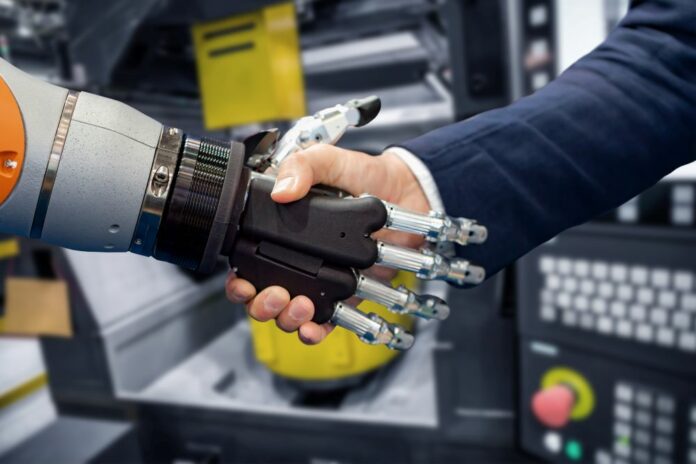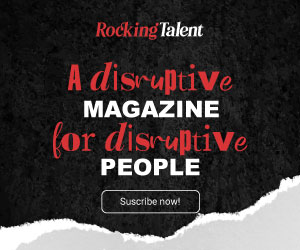Integrating Human Resources and Artificial Intelligence is undoubtedly the challenge that almost every organization faces nowadays. Mark Stelzner, Founder and Managing Principal at IA and HR Tech Influencer, talked with Rocking Talent about the reason why the HR departments will have to mantain their flexibility and how the question “Why wait?” is so important when it comes to transforming and complementing with AI.
COVID-19 has been an accelerator for the transformation of most of the organizations, how do you work with the organizations to make those changes be strategic and sustainable?
– COVID-19 has given employers permission to drive change in areas that were previously immovable. That same permission has also overwhelmed organizations who struggle to reprioritize based upon the incredibly dynamic nature of today’s environment. Given our approach is grounded on developing deep and meaningful relationships with the C-suite, we spend a tremendous amount of time and energy ensuring we understand both the subjective and objective criteria for internal decision making. That foundational work then informs the development of a strategic roadmap for the organization, including the ability to adjust as new initiatives or requirements arise.
Insofar as sustainability, I recently shared with the CEO of one of our clients that, “The goal should always be to get rid of the consultants, including my firm”. These comments are always met with a knowing smile by C-suite leaders who have been bled dry by management consulting firms. “No consultants” is an ironic goal from the leader of a consulting firm, but I believe intentional knowledge transfer can eradicate codependency and set our clients free!
How long do you think it will take people and companies to stop talking about Transformation and AI and start talking about what is already established and using it in their favour?
– Organizations are like humans – constantly reflecting and evolving. For some, that evolution is gradual and iterative, yet for others it can be shocking and rapid. As HR budgets have been significantly impacted by the financial headwinds of 2020, many organizations are looking at process optimization versus wholesale transformation. AI can certainly help to intervene through the emergence of chatbots in service centers, natural language processing in engagement surveys, and other high-value use cases. The challenge is that not everyone agrees what “AI” means in the HR space. We are just now understanding the real-world impacts that overreliance on AI can have, especially when it comes to bias. Whether intended our not, how we are programmed to change – as humans and AI – will profoundly impact our ability to learn, engage and transform.
There are professionals that for a long time resisted transforming their processes. What would you advice to walk by these people to accept cultural changes?
– We often challenge organizations and individuals with this simple question: “Why wait?” Starting small with a process each individual owns (as a proof of concept) will continue to build the case for increased process transformation. Naturally, part of this is about true empowerment at the individual level. No one truly works in a vacuum and you probably own more than you think you do. More simply stated, you can change a process without disrupting an entire company. We firmly believe that the best transformation is the one you don’t need, so start doing the work now and build on that positive momentum.
Could you give us advice on how to find an opportunity to apply AI in talent management area?
– Continuous conversations between managers and their employees/teams has increased the deployment of tools and techniques to capture sentiment, goals, objectives and feedback in a much more conversational way. This focus on an open narrative means that natural language – and I mean how we really talk and converse – is part of the entire talent management lifecycle. Emerging technologies such as AI can crawl through millions of conversations and elicit intent, emotion, action and reaction to inform organization-wide trends, suggested interventions, high-value focus and flight risk.
What do you believe is the most challenging situation HR departments are going to face or are facing right now?
– Two words – staying nimble. Globally, HR departments have been challenged to adapt to a rapidly changing world and have largely been successful. They were able to focus on the top priorities, eliminate bureaucratic obstacles and simply execute on what was needed. The business and quite frankly, HR, will not accept going back to the old way where red tape and elaborate approval processes ruled the day. HR will need to maintain a flexibility in thinking to be able to address changes as they come, as well as build an infrastructure that can support the need for rapid response. That being said, we’ve largely succeeded through blunt force and long hours, so HR needs to. Be more efficient and fluid to avoid burnout and high turnover within the function.
On an article you wrote on LinkedIn “The (HR) Leftovers” you commented: “Imagine a world in which organizations and their HR teams work together to find new ways of boosting revenue and profitability without having to fire half their people”, what do you consider is the missing piece in the organizations so that the HR teams can work this way?
– Frankly, I think it’s the right mindset and operating model. HR can often get in its own way, applying ridiculous processes and policies to achieve even the simplest things in the organization. As a result, the business will often bypass HR to drive truly innovative work in the areas of dynamic teams, people development, and other key careabouts. This isn’t about the much-discussed “seat at the table” (I hate that term); instead, it’s about how we deploy highly skilled HR professionals to both the opportunities and challenges that exist throughout the enterprise. When properly mobilized, HR can help the business think through pros and cons, navigate legal requirements without sacrificing innovation, and truly plan for the future.
And lastly but not least, what are your expectations towards HR working along with AI in the near future?
– Many roles are eligible for high-value augmentation through automation, and HR is no exception. A recent study by the McKinsey Global Institute suggested that, “fewer than five percent of occupations can be entirely automated using current technology”. They added, however, that “about 60% of occupations could have 30% or more of their constituent activities automated”. Whether it’s data processing or collection, interactions with stakeholders, applying expertise or managing others, HR can benefit from a symbiotic and complimentary relationship with intelligent tools.
Since 2006, Mark is leading IA, a management consulting firm that aids organizations from 1,000 to 500,000 employees through all aspects of their HR transformational journey. A highly sought-after voice in the industry, Mark has been featured by the Wall Street Journal, the New York Times, Forbes, CNN, and NPR. Named a Top 100 HR Tech Influencer by Human Resources Executive, Mark is also a member of the Forbes Human Resources Council.
MARK STELZNER | Founder/Managing Principal at IA, C-Suite Advisor, HR Transformational Leader & HR Tech Influencer





